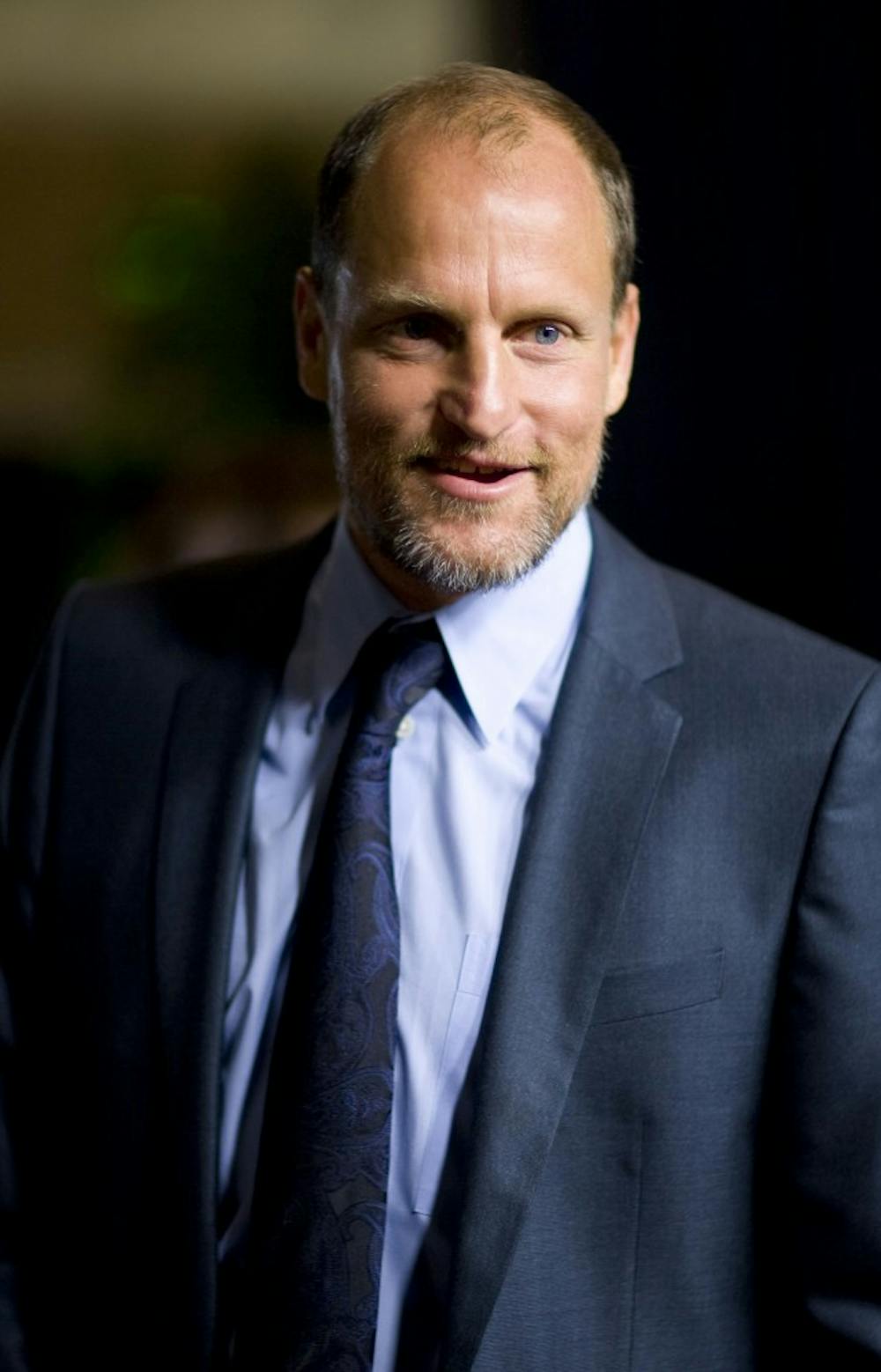Grade: B+
Early in the live-broadcasted movie “Lost in London,” Woody Harrelson tries to convince bouncers to let him into a club. It’s 2002, and Harrelson’s star has faded. He tries referencing movies he’s been in, and the bouncers keep laughing at him.
So Harrelson starts singing the Cheers theme song “Where Everybody Knows Your Name” from his days as Woody Boyd, the bartender on the famous sitcom. It was a moment that earned laughs throughout the theater, but it was also a sad instance of Harrelson poking fun at his past and embarrassing himself to get through this awful night.
This moment is an example of what “Lost in London” is as a whole.
It’s an impressive film written and directed by Harrelson that is built around making fun of his career to tell the story of a low point in Harrelson’s life.
“Lost in London” is a deeply personal story of how Harrelson almost lost his marriage and family because of his partying habits.
The film would stand decently well on its own as a normal movie. It might not be a great one, but it would be pretty good.
What makes this film an achievement, though, is that it embodies theatre-as-film in the most pure way I’ve seen.
The movie was filmed live and streamed to theaters across the country as a one-time-only experience.
"Birdman" was praised in 2014 for appearing as one long, continuous shot.
"Lost in London" actually was shot in a single take.
Part of me wonders if this all only worked because we were all a part of this stressful, emotional ride. We won’t ever know, but this worked.
The live aspects added beauty but also took some opportunities away. In moments of emotion, it added authenticity. During occasional awkward jokes, you might wish there had been a way to do multiple takes, but the ride is what makes this so enjoyable.
Aside from the emotional moments, what made “Lost in London” truly sing was the feeling of being inside the Hollywood world.
The highlight was a stretch of Harrelson and Owen Wilson in a club together. The audience gets to hear these two stars and real-life close friends talk about the industry and debate whether Wes Anderson or Harrelson is Wilson’s actual best friend. You felt like you were part of their fun.
At times, the film relies too much on that self-deprecatory humor. There are a few too many jokes about Harrelson's old movies.
For instance, when a detective slams Harrelson against the table and asks, “Who’s the ‘Natural Born Killer,’?” I rolled my eyes more than I laughed.
However, as mentioned earlier, much of the beauty of the film comes from the opportunity for failures. There is no editing — mistakes are mistakes.
Sometimes I had to ask myself, "Why are Harrelson and his wife talking so openly about maybe breaking up in front of their young children?" I wished there had been less time spent with his family.
Yet I enjoyed “Lost in London” thoroughly. It’s a film that lets you inside the head of a star who normally perpetuates the idea that he is just a goofy stoner.
It also shows Harrelson might just have the skills to start a third act of his career as a filmmaker.
Whether other filmmakers will attempt the live broadcast format is another question.




